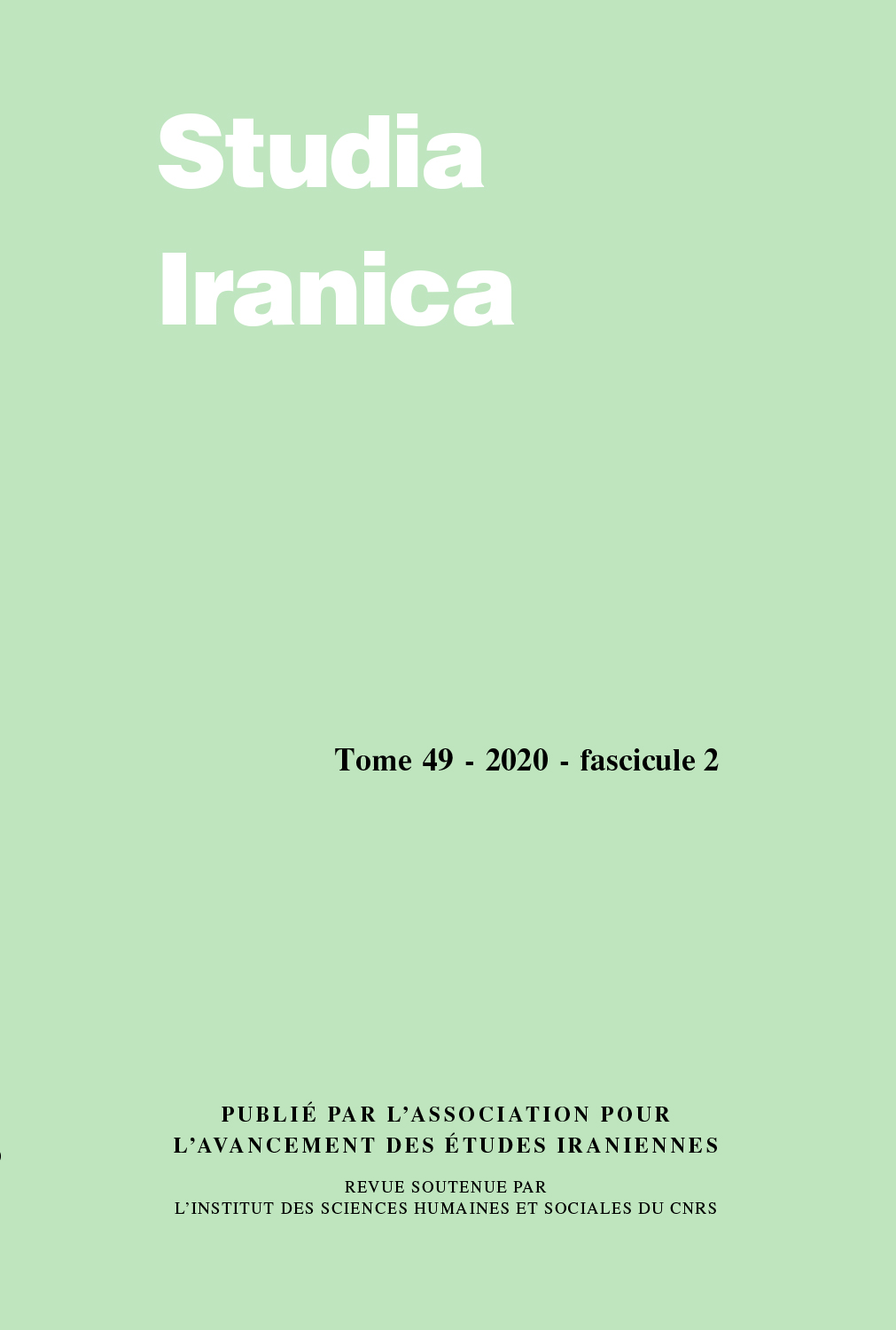 previous article in this issue previous article in this issue | next article in this issue  |

Preview first page |
Document Details : Title: From Adam to Abaqa: Qadi Baidawi's Rearrangement of History Author(s): MELVILLE, Charles Journal: Studia Iranica Volume: 30 Issue: 1 Date: 2001 Pages: 67-86 DOI: 10.2143/SI.30.1.294 Abstract : Qâdî Baidâwî's Nizâm al-tawârîkh, written c. 674/1275, is usually dismissed as an insignificant work of Islamic general history. Although it is of limited use as a source of factual information, Baidâwî's influential reading of history is interesting for other reasons. It was evidently composed under the patronage of Shams al-Dîn Juvainî and Sughunjaq Noyan, and is consistent with the efforts of these two powerful officials to steer the alien Mongol regime towards embracing the culture and traditions of their Persian subjects. Baidâwî's emphasis on Iranian history and on the ethics of government provides a context for asserting the continuity of independent rule on the Iranian plateau under the new Mongol conquerors. L'ouvrage de Qâdî Baidâwî, le Nizâm al-tawârîkh (c. 674/1275), est habituellement négligé comme étant un ouvrage général peu important d'histoire musulmane. Bien qu'il soit effectivement d'une utilité limitée pour l'information factuelle, son interprétation de l'histoire, qui a eu une grande influence, nous intéresse également pour d'autres raisons. Il semble évident que l'ouvrage a été composé sous le mécénat de Shams al-Dîn Juvainî et de Sughunjaq Noyan : il s'inscrit dans la lignée des efforts déployés par ces deux dignitaires pour inciter le pouvoir mongol étranger à adopter la culture et les traditions de leurs sujets persans. L'accent que met Baidâwî sur l'histoire iranienne et sur l'étique de la façon de gouverner, fournit un cadre pour affirmer la continuité d'un pouvoir indépendant sur le plateau iranien sous les nouveaux conquérants mongols. |
|


